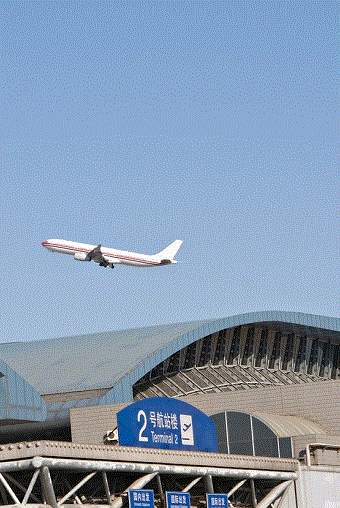Transportation, Supply Chain & Logistics Industry Market Research
Competitive Intelligence, Business Analysis, Forecasts, Market Size, Trends, Companies, Statistics
Available Data Services: Custom Research Projects, Database Subsription or PDF eBooks
PLUNKETT PROVIDES IN-DEPTH STATISTICS TABLES COVERING THE FOLLOWING INDUSTRY TOPICS:
-
Transportation Industry Statistics and Market Size Overview
-
Estimated U.S. Core Transportation Sector Revenues 1990-2018
-
U.S. Transportation & Warehousing Industry Revenues: 2019-2022
-
U.S. Transportation & Warehousing Industry Expenses: 2019-2022
-
Top 50 Countries Providing U.S. Imports of Goods: 2017-2024
-
Top 50 Countries Receiving U.S. Exports of Goods: 2017-2024
-
Top 10 U.S. Airlines & Airports Ranked by 2024 System Scheduled Enplanements
-
Quarterly U.S. Scheduled Service Passenger Airlines Financial Reports: 3rd Quarter 2023-3rd Quarter 2024
-
Top 30 U.S. Customs Ports by Waterborne Foreign Container Trade: 2015-2017
-
Top 30 U.S. Customs Ports by Waterborne Foreign Container Import: 2015-2017
-
Total Scheduled U.S. International Passenger Traffic, U.S. Commercial Air Carriers*: 2010-2044
-
Truck Transportation Industry, U.S.: Estimated Truck Inventories: 2015-2019
-
Air Carrier Traffic Statistics, U.S.: 2000 - 2024
-
Top 30 U.S. Customs Ports by Waterborne Foreign Container Export: 2015-2017
-
Federal R&D & R&D Plant Funding for Transportation, U.S.: Fiscal Years 2023-2025
-
Quarterly U.S. Scheduled Service Passenger Airlines Financial Reports: 3rd Quarter 2019-3rd Quarter 2020
-
U.S. Aviation Industry Average Annual Percentage Growth Forecasts by World Region: 2019-2039
-
U.S.-Canadian Border Land-Freight Gateways: Number of Incoming Truck or Rail Container Crossings: 2017-2018
-
U.S.-Mexican Border Land-Freight Gateways: Number of Incoming Truck or Rail Container Crossings: 2017-2018
-
Domestic Airline Jet Fuel Prices, U.S.: January 1986-October 2015
-
Federal R&D & R&D Plant Funding for Transportation, U.S.: Fiscal Years 2022-2024
-
Truck Transportation Industry, U.S.: Estimated Revenue by Commodities Handled:2015-2017
-
Total Scheduled U.S. International Passenger Traffic, U.S. Commercial Air Carriers: 2010-2040
-
Air Carrier Traffic Statistics, U.S.: 12 Months Ended May 2019 and June 2018
-
Personal Transportation Expenditures, U.S.: 2013-2020
-
U.S. Airline Revenue Passenger Enplanements: January 1996-May 2019
-
Amtrak Ridership: January 1991-September 2015
-
Annual U.S. Domestic Average Itinerary Air Fare: 1995-Q1 2019
-
Rail Passenger Capacity Utilization, U.S.: January 2003-August 2015
-
U.S. Airline Passenger Activity: 2010-2044
-
Domestic Airline Fuel Cost, U.S.: January 1986-January 2019
-
Highway Vehicle Miles Traveled, U.S., Monthly: January 1990-September 2015
-
Quarterly U.S. Scheduled Service Passenger Airlines Financial Reports: 3rd Quarter 2022-3rd Quarter 2023
-
Transportation Industry Employment by Business Type, U.S.: 2015-2020
-
Transportation Services Index, U.S.: January 2000-September 2015
-
U.S.-Canadian Border Land-Freight Gateways: Number of Incoming Truck or Rail Container Crossings: 2019-2020
-
U.S.-Mexican Border Land-Freight Gateways: Number of Incoming Truck or Rail Container Crossings: 2019-2020
-
U.S. Airline Revenue Passenger Enplanements: January 1996-October 2016
-
Average Freight Revenue Per Ton-mile, U.S.: 2000-2017
-
Transportation Services Index, U.S.: January 2000-January 2019
-
Percent Change in the U.S. Transportation Services Index (TSI) from Year-to-Year: 2005-2016
-
Consolidation in U.S. Airlines
-
Monthly U.S. Transportation Services Index (TSI): October 2017-April 2018
-
Retail On-Highway Diesel vs. Regular Gasoline Prices, U.S.: January 1995-September 2019
-
Percent Change in the U.S. Transportation Services Index (TSI) from Year-to-Year: 2006-2016
Top Companies Profiled
The following is a partial listing for this industry. As a subscriber, you will have access to the leading companies and top growth companies. This includes publicly-held, private, subsidiary and joint venture companies, on a global basis as well as in the U.S.
Hundreds of Top Companies Profiled, Including:
PLUNKETT PROVIDES UNIQUE ANALYSIS OF THE FOLLOWING TRENDS THAT ARE DRIVING THIS INDUSTRY:
-
Introduction to the Transportation, Supply Chain & Logistics Industry
-
The Coronavirus’ Effect on the Transportation, Supply Chain & Logistics Industry
-
3PL Logistics Services and Supply Chain Management Services
-
FedEx, UPS & DHL Compete for Global Market Share in Shipping and Logistics
-
Trucking Companies and LTL Freight Rebound/Intermodal Shipments Rise
-
Freight Railway Revenues and Investment in Infrastructure Soar/ Shipment of Crude Oil by Rail Is Intense and Controversial
-
China Makes Immense Investments in Railroads, Highways & Airports
-
High-Speed Passenger Trains, Including Maglev, Advance in China and Europe
-
U.S. Passenger Train Projects Receive Funding, including Amtrak and Light Rail
-
Ships Get Bigger and Global Ports Expand
-
Panama Canal Expansion Boosts Capacity by 2016
-
Discount Airlines Compete with Legacy Airlines, but the Differences Are Beginning to Blur
-
Major Airlines Change Strategy, Charge Fees and Boost Profits
-
Boeing and Airbus Enjoy Boom in Orders/Major Aircraft Market in China
-
New Aircraft Designs Offer Greater Passenger Comfort/More Efficient Engines
-
Air Traffic Grows/Airports Expand/ Middle East and Asia Have Strong Air Traffic
-
ADS-B Improves Air Traffic Control
-
New Technologies Show Promise for Port and Airport Security
-
RFID Drives Inventory Management Evolution
-
Wireless Information Systems Surge Ahead in Vehicles: Telematics, Intelligent Transportation (ITS) and Real-Time Traffic Information
-
Supply Chain Management (SCM) Software Combines with Wireless
-
India’s Transportation Infrastructure Needs Billions of Dollars in Construction
-
Car-Sharing Programs (Short-Term Rentals), AKA Mobility Services, Proliferate
-
Uber and Didi Dominate the Car on Demand (Raid Hailing) Industry
-
GPS and Location Based Services (LBS) Enhance Smartphone Subscriptions
-
Self-Driving, Autonomous Cars Receive Massive Investments in Research and Development Worldwide
-
Consumers Use Bike Sharing, Car Services Like Uber, Light Rail and Ride Sharing to a Growing Extent
-
Toll Roads Solve Highway Needs in the U.S., Australia, the UK and Elsewhere
-
Smart Cities Increase Efficiencies of All Kinds
-
Robotics Revolutionize Supply Chain and Logistics Systems
-
Global Infrastructure Investment Needs Top $50 Trillion through 2030, Offering Vast Opportunity to Engineers and Developers
-
Bicycle Sharing Grows in Major Cities, But Financial Outlook Is Poor
Key Findings:
A complete market research report, including forecasts and market estimates, technologies analysis and developments at innovative firms within the Transportation, Supply Chain & Logistics Industry.Gain vital insights that can help shape strategy for business development, product development and investments.
Key Features:
- Business trends analysis
- In-depth industry overview
- Technology trends analysis
- Forecasts
- Spending, investment, and consumption discussions
- In-depth industry statistics and metrics
-
Industry employment numbers
Additional Key Features Include:
Industry Glossary
Industry Contacts list, including Professional Societies and Industry Associations
Profiles of industry-leading companies
- U.S. and Global Firms
- Publicly held, Private and Subsidiaries
- Executive Contacts
- Revenues
-
For Public Companies: Detailed Financial Summaries
-
Statistical Tables
Key Questions Answered Include:
- How is the industry evolving?
- How is the industry being shaped by new technologies?
- How is demand growing in emerging markets and mature economies?
- What is the size of the market now and in the future?
- What are the financial results of the leading companies?
- What are the names and titles of top executives?
-
What are the top companies and what are their revenues?
This feature-rich report covers competitive intelligence, market research and business analysis—everything you need to know about the Transportation, Supply Chain & Logistics Industry.
Plunkett Research Provides Unique Analysis of the Following Major Trends Affecting the Transportation, Supply Chain & Logistics Industry
-
Major Trends Affecting the Transportation, Supply Chain & Logistics Industry
-
Introduction to the Transportation, Supply Chain & Logistics Industry
-
3PL Logistics Services and Supply Chain Management Services Evolve and Consolidate
-
FedEx, UPS & DHL Compete in Global Shipping and Logistics/Amazon.com Fulfills Much of Its Own Shipping Needs
-
Trucking Companies Focus on Driver Challenges, Regulatory Issues & Self-Driving Trucks
-
Freight Railways Invest in Automation, Infrastructure and Safety
-
China Makes Immense Investments in Railroads, Highways, Airports & Silk Road
-
High Speed Passenger Trains, Including Maglev, Advance in China and Europe
-
U.S. Passenger Train Projects Receive Funding, Including Light Rail and All Aboard Florida
-
Ships Get Bigger and More Efficient
-
Ports and Canals Expand to Accommodate Larger Vessels and Increased Shipment Volume
-
Discount Airlines Compete with Legacy Airlines, but the Differences Are Beginning to Blur
-
Boeing and Airbus Compete for New Orders
-
New Aircraft Designs Offer Greater Passenger Comfort/More Efficient Engines
-
Airports Expand
-
New Technologies Show Promise for Port and Airport Security
-
RFID Drives Inventory Management Evolution
-
Wireless Information Systems Surge Ahead in Vehicles: Telematics, ITS and Real Time Traffic Information
-
India’s Transportation Infrastructure Needs Billions of Dollars in Construction
-
Uber, Lyft and Didi Dominate the Car on Demand (Raid Hailing) Industry
-
Self-Driving, Autonomous Cars Receive Massive Investments in Research and Development Worldwide
-
Bicycle Sharing Is Well Established in Major Cities
-
Smart Cities Utilize Sensors and Artificial Intelligence (AI)/Create Privacy and Security Issues
-
Robotics, Artificial Intelligence (AI) and Automation Revolutionize Supply Chain and Logistics Systems
-
The Future of Transportation and Supply Chains: Massive Investments in Infrastructure & Mobility Services
Plunkett Research Provides In-Depth Tables for the Following Transportation, Supply Chain & Logistics Industry Statistics
-
Transportation Industry Statistics and Market Size Overview
-
U.S. Transportation & Warehousing Industry Revenues: 2019-2022
-
U.S. Transportation & Warehousing Industry Expenses: 2019-2022
-
Top 50 Countries Providing U.S. Imports of Goods: 2017-2024
-
Top 50 Countries Receiving U.S. Exports of Goods: 2017-2024
-
Top 10 U.S. Airlines & Airports Ranked by 2024 System Scheduled Enplanements
-
Quarterly U.S. Scheduled Service Passenger Airlines Financial Reports: 3rd Quarter 2023-3rd Quarter 2024
-
Total Scheduled U.S. International Passenger Traffic, U.S. Commercial Air Carriers: 2010-2044
-
Air Carrier Traffic Statistics, U.S.: 2000 - 2024
-
Federal R&D & R&D Plant Funding for Transportation, U.S.: Fiscal Years 2023-2025




















